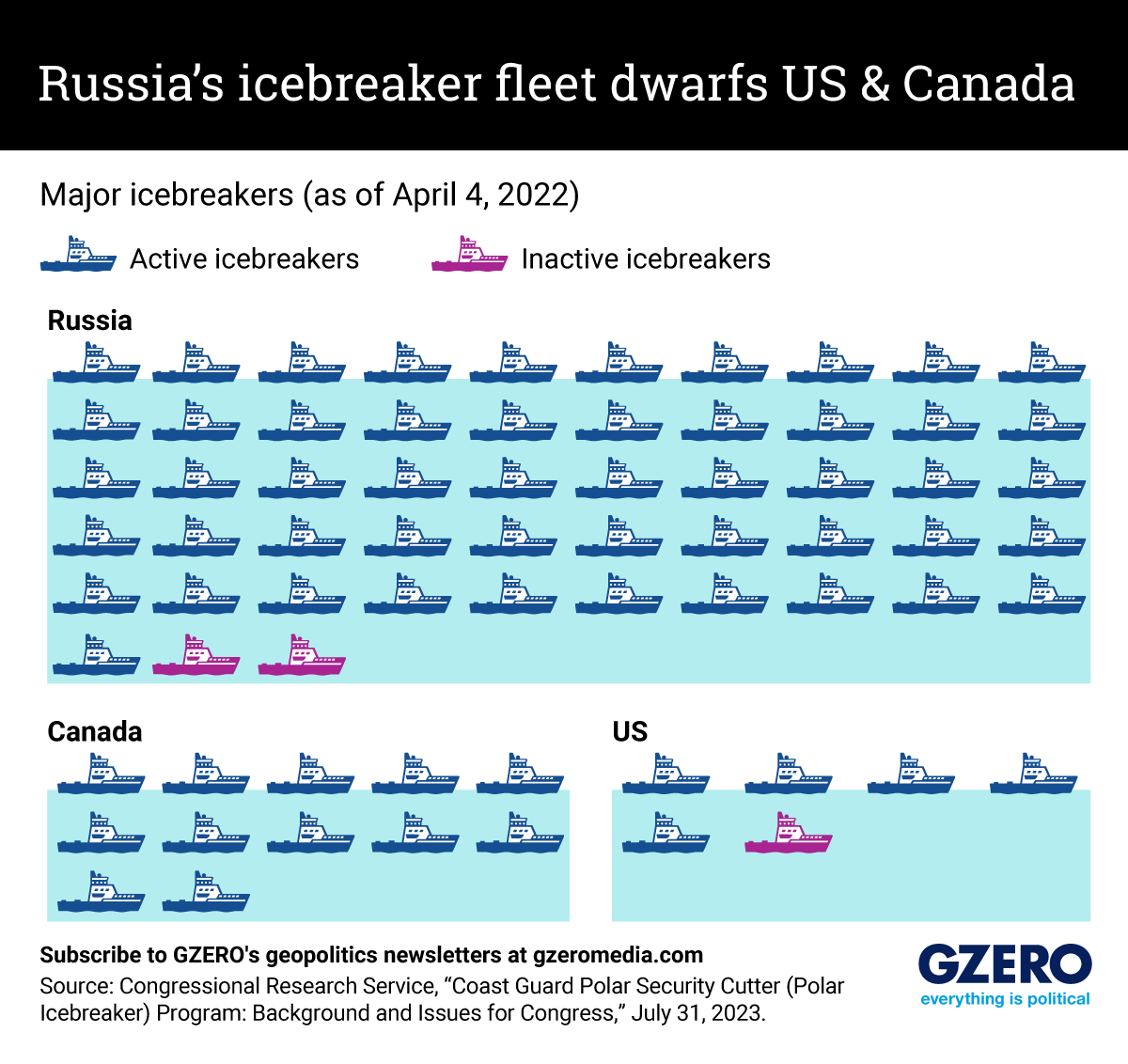When you think of an island nation, what comes to mind? Maybe the vast archipelagoes of Indonesia and the Philippines? Or Japan, which discovered over 6,000 more islands in its territory this year thanks to advancements in satellite cartography?
Probably not Canada, right? Well, the fact is with over 52,000 islands, Canada has more than three times as many as any of the above countries. What’s more, three of the 10 largest islands on earth are found in Canada’s arctic archipelago, which results in Canada having – by far – the longest national coastline in the world.
The problem, of course, is that more than 70% of that coastline borders the icy waters of the Arctic, rendering it inaccessible much of the year. Or at least it used to be inaccessible. Climate change is steadily opening more of the northern waters to navigation in warmer months, but the use of icebreakers is still crucial to navigation.
And there’s the strategic rub. Canada and the United States have between them fewer than 20 active icebreakers, both public and privately owned, while on the other side of the North Pole, Russia can field more than 50.
Ottawa and Washington aren’t ignorant of the imbalance. The US Coast Guard is trying to replace its aging squadron of icebreaking cutters, but delays and inexperience on the part of US manufacturers in the specialized engineering required have delayed the first ship’s delivery to 2027. The Canadian navy is faring somewhat better: The HMCS Harry DeWolf was launched in 2018 as the lead model of six planned icebreaking patrol ships, all of which are already either in service or under construction.